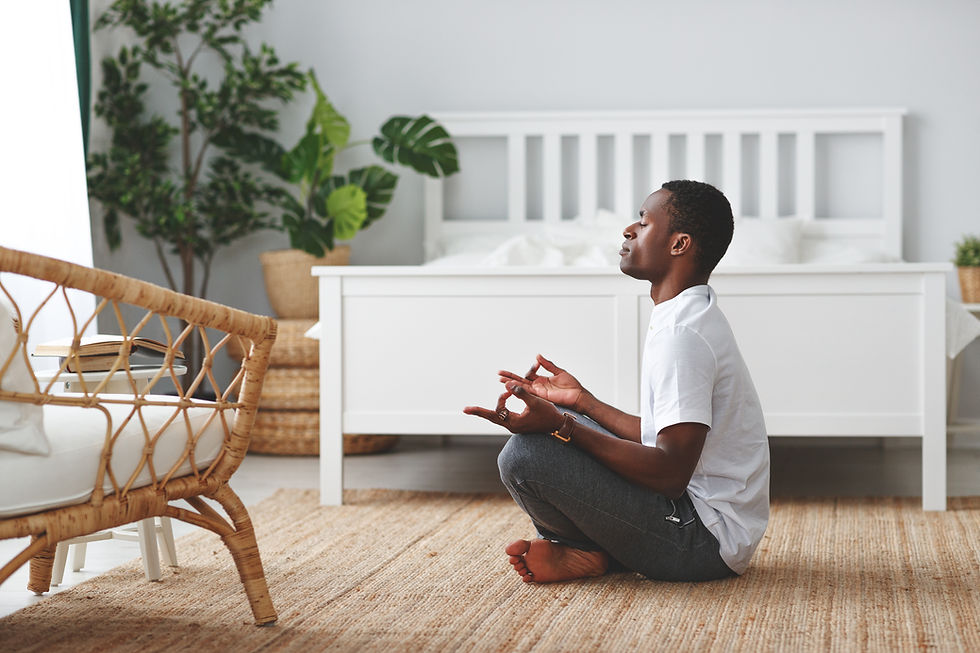The Power of Discipline: How Self-Discipline Supports Mental Well-being
- Jun 13, 2023
- 3 min read
Discipline is important for mental well-being because it plays a significant role in promoting self-regulation, building resilience, and fostering positive habits. Research supports the notion that incorporating discipline into our lives can have a profound impact on our mental health.
First lets try and understand what is being discipline ?
Discipline can be defined as the ability to control one's thoughts, emotions, and behaviors to achieve specific goals or maintain a desired course of action. Research indicates that discipline encompasses self-regulation, willpower, cognitive control, habit formation, emotional regulation, resilience, and goal pursuit. It plays a vital role in academic success, personal achievement, emotional well-being, and the adoption of healthy behaviors. Developing discipline can have significant positive effects on various aspects of life, enabling individuals to make choices aligned with their long-term goals and maintain a balanced and fulfilling lifestyle.

What does research say about the connection of discipline and mental wellbeing?
Research consistently highlights the importance of discipline for mental well-being. By cultivating self-discipline, individuals can improve self-regulation, build resilience, establish positive habits, achieve goals, and enhance cognitive functioning. Incorporating discipline into our daily lives can lead to better emotional control, stress management, and overall mental well-being.
Here are some key points backed by research:
Self-Regulation and Emotional Control: A study published in the journal Psychological Science found that individuals with higher levels of self-discipline exhibited better emotional control and regulation.
Resilience and Coping Skills: Discipline fosters perseverance, determination, and a positive mindset, enabling individuals to bounce back from adversity and maintain mental well-being. Research published in the Journal of Personality and Social Psychology indicates that self-discipline is associated with greater psychological resilience.
Formation of Positive Habits: According to a study published in the European Journal of Social Psychology, it takes an average of 66 days to form a new habit. By practicing discipline, individuals establish routines and stick to them, making positive habits an integral part of their daily lives.
Goal Setting and Achievement: Research published in the Journal of Personality and Social Psychology suggests that disciplined individuals are more likely to set clear goals and achieve them.
Improved Cognitive Functioning: A study published in the journal Frontiers in Psychology indicates that self-discipline is associated with improved cognitive functioning, including enhanced attention, memory, and decision-making abilities. Discipline enables individuals to overcome distractions, maintain focus, and make mindful choices, leading to better cognitive performance and mental well-being.
So, how can we plan to be disciplined?
Developing a daily plan to discipline oneself for better mental well-being requires a structured approach that incorporates various aspects of self-care, personal growth, and healthy habits. I would always say start small. Take those baby steps, as and when you feel confident you can keep adding to your routine. Here's a sample daily plan to help you get started:
Morning Routine:
Wake up at a consistent time: Set a specific wake-up time to establish a regular sleep routine and ensure you get enough rest.
Mindful moments: Start your day with a few minutes of mindfulness or meditation to center yourself and cultivate a calm mindset.
Gratitude practice: Reflect on three things you're grateful for each morning to cultivate a positive mindset and foster gratitude.
Physical activity: Engage in exercise or stretching to boost energy, release endorphins, and improve overall well-being.
Work/Productive Hours:
Prioritize tasks: Make a to-do list or prioritize your tasks for the day to maintain focus and stay organized.
Blocking Time: Allocate specific time blocks for different activities to enhance productivity and avoid multitasking.
Take breaks: Incorporate short breaks between tasks to rest, recharge, and maintain mental clarity.
Healthy eating: Consume nutritious meals and snacks to fuel your body and support optimal brain function.
Stay hydrated: Drink an adequate amount of water throughout the day to stay hydrated and maintain cognitive function,
Self-Care and Personal Growth:
Mindful eating: Practice mindful eating by savoring each bite, paying attention to flavors and textures, and eating without distractions.
Self-reflection: Take a few minutes to reflect on your thoughts, emotions, and experiences to foster self-awareness and emotional well-being.
Engage in hobbies: Dedicate time to activities you enjoy, such as reading, painting, playing an instrument, or engaging in creative pursuits.
Connect with loved ones: Schedule time to connect with family and friends, whether through phone calls, video chats, or in-person meetings.
Personal development: Engage in personal growth activities like reading books, attending webinars, or taking online courses to expand your knowledge and skill.
Evening Routine:
Digital detox: Set aside dedicated time in the evening to disconnect from screens and engage in screen-free activities.
Relaxation techniques: Practice relaxation techniques such as deep breathing, progressive muscle relaxation, or journaling to unwind and reduce stress.
Quality sleep: Establish a consistent bedtime routine, creating a calming environment conducive to quality sleep.
Remember, this daily plan is just a starting point, and you can customize it based on your preferences and individual needs. The key is to establish a routine that supports your mental well-being, promotes self-discipline, and allows you to prioritize self-care, personal growth, and healthy habits throughout your day.




Comments